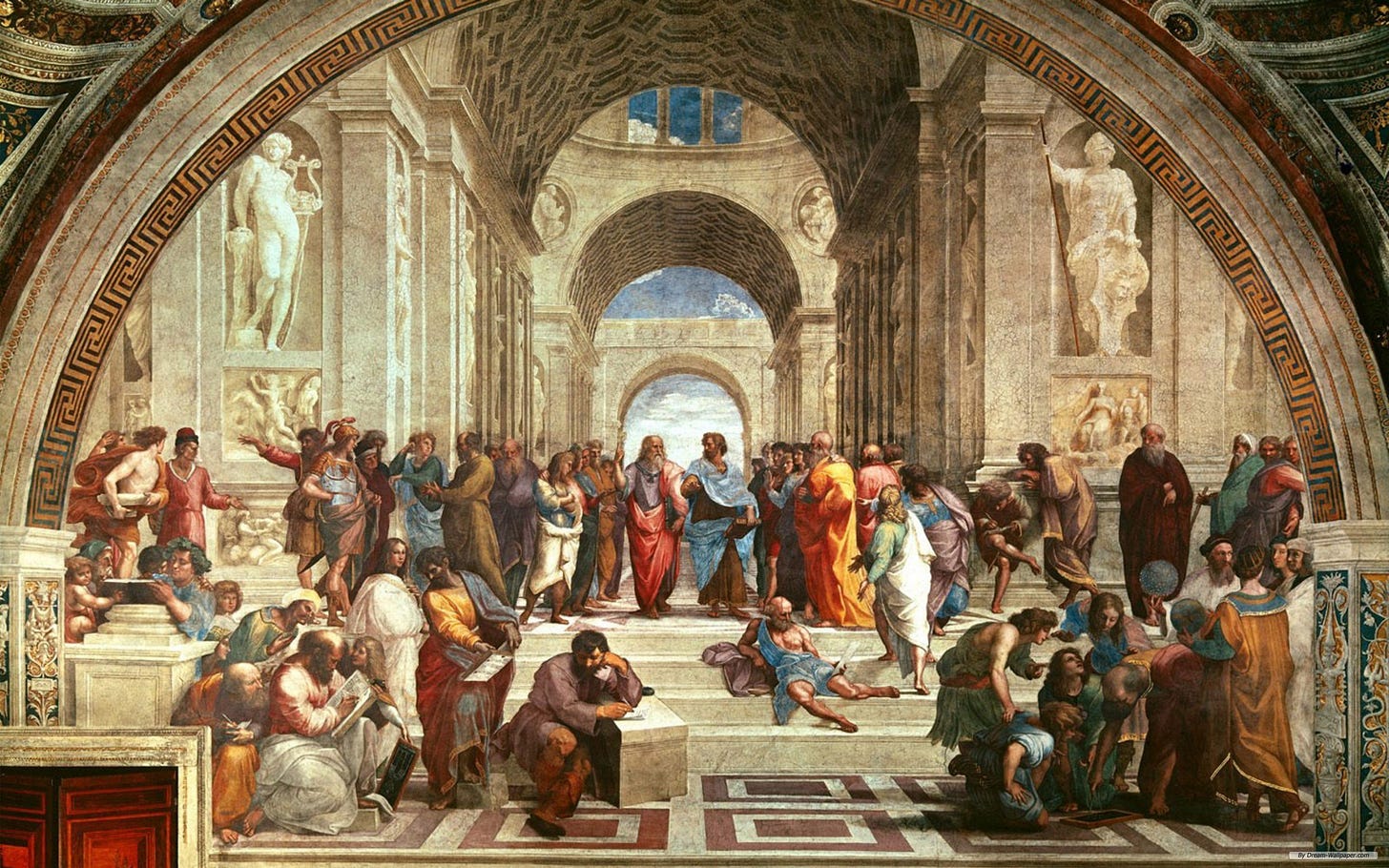It is sometimes said that there are only two kinds of philosophers, Platonists and Aristotelians. What follows is a quotation from Heinrich Heine which expresses one version of this useful simplification. Carl Gustav Jung places it at the very beginning of his Psychological Types (Princeton UP, 1971, p. 2. Jung does not properly source the Heine quotation.)
Plato and Aristotle! These are not merely two systems: they are also types of two distinct human natures, which from time immemorial, under every sort of disguise, stand more or less inimically opposed. The whole medieval period in particular was riven by this conflict, which persists down to the present day, and which forms the most essential content of the history of the Christian Church. Although under other names, it is always of Plato and Aristotle that we speak. Visionary, mystical, Platonic natures disclose Christian ideas and their corresponding symbols from the fathomless depths of their souls. Practical, orderly, Aristotelian natures build out of these ideas and symbols a fixed system, a dogma and a cult. Finally, the Church eventually embraces both natures—one of them entrenched in the clergy, and the other in monasticism; but both keeping up a constant feud. ~ H. Heine, Deutschland I
Plato, on the left carrying The Timaeus, points upwards while Aristotle, on the right carrying his Ethics, points either forward (thereby valorizing the 'horizontal' dimension of time and change as against Plato's 'vertical' gesture) or downwards (emphasizing the foundational status of sense particulars and sense knowledge.) At least five contrasts are suggested: vita contemplativa versus vita activa, mundus intelligibilis versus mundus sensibilis, transcendence versus immanence, eternity versus time, mystical unity versus rational-cum-empirical plurality.
Heine is right about the battle within Christianity between the Platonic and Aristotelian tendencies. Trinity, Incarnation, Transubstantiation, Divine Simplicity— these and others are at bottom mystical notions impervious to penetration by the discursive intellect as we have been lately observing. Nevertheless, "Practical, orderly, Aristotelian natures build out of these ideas and symbols a fixed system, a dogma and a cult." But the dogmatic constructions, no matter how clever and detailed, never succeed in rendering intelligible the trans-intelligible, mystical contents.




